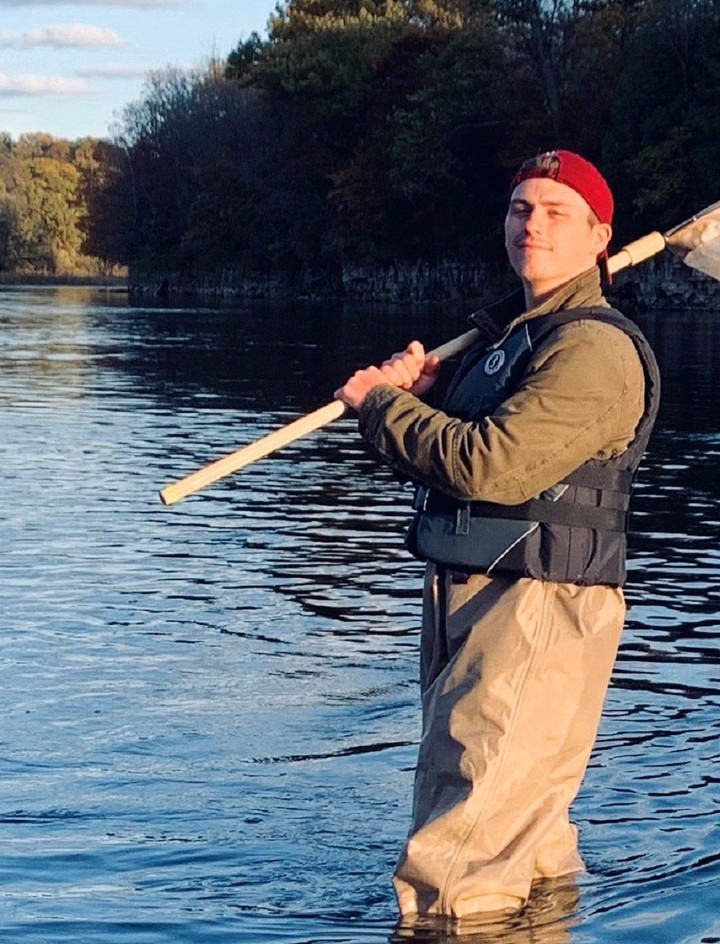Matthew Chanyi (Honours thesis, 2020)
 Charles-Matthew Chanyi
Charles-Matthew Chanyi
Project description: The Sahtú Settlement Area (SSA) in Canada’s Northwest Territories is experiencing significant environmental changes. The mean annual temperature has increased >1.5oC in the past 50 years, and forest expansion and lighting ignitions are increasing the frequency and severity of wildfires. As fires increase in frequency, it is important to understand how aquatic ecosystems respond to changes in their water catchments. Changes in lake water quality associated with wildfires are likely to affect aquatic communities, including the zooplankton. Zooplankton play a vital role in freshwater food webs, as they transfer energy from primary producers to larger organisms such as macroinvertebrates and fish. Zooplankton were collected and water quality was measured in 20 lakes during 2018 and 2019 in the SSA: 9 lakes were affected by 2014 wildfires, and 11 had not been affected by fires since the 1970s. Zooplankton were identified down to the genus level, and communities were compared between burned and reference lakes to examine differences in richness, diversity, percent abundance of feeding groups, and relative abundance. There were no significant differences in any of these metrics between burned and reference lakes. Redundancy analysis revealed that the variation among zooplankton communities in the lakes sampled was best explained by calcium, temperature, macrophyte density, and total organic carbon, but again failed to identify differences caused by wildfires. Since no inherent differences were found between the northern zooplankton communities 4-5 years after fires, it suggests that they show a resiliency to wildfire disturbances similar to that found for southern communities. Further analysis of rotifer and fish assemblages within the lakes of the SSA is needed in order to gain a full understanding of the factors driving differences in zooplankton community composition among lakes.
Associated projects: Forest fires in the Sahtu